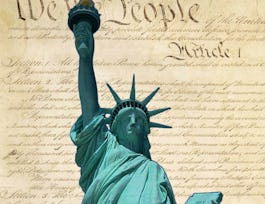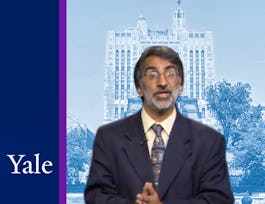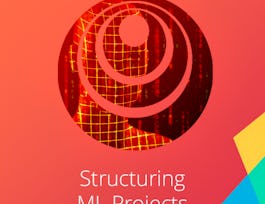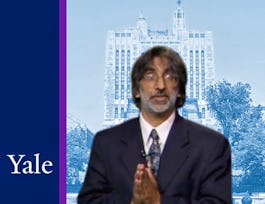This course will highlight the construction and interpretation of the U.S. Constitution through the centuries. You'll learn the history behind the Constitution, cases that formed important precedent, and how changes in interpretation have been dependent on shifts in cultural and political climate as well as the composition of the Supreme Court.


Chemerinsky on Constitutional Law - The Structure of Government
Taught in English
Some content may not be translated
13,691 already enrolled
(87 reviews)
Details to know

Add to your LinkedIn profile
5 quizzes
See how employees at top companies are mastering in-demand skills


Earn a career certificate
Add this credential to your LinkedIn profile, resume, or CV
Share it on social media and in your performance review

There are 7 modules in this course
What's included
2 videos3 readings
In this module, we'll examine two facets of the critical question, "Why the Constitution?" First we'll answer the question, "what functions does the Constitution perform?" We'll then consider the question, "why achieve these functions in the form of a written Constitution?"
What's included
5 videos1 reading1 quiz1 peer review
What is the authority of judicial review? Why is it important? If the federal judiciary can declare a statute or action unconstitutional, what checks are there on this power? These are several of the questions we will endeavor to answer in this module.
What's included
7 videos1 reading1 quiz1 peer review
In this module we will consider three major questions: 1.How did McCullough vs. Maryland shape the power of the legislature? 2. What are the major powers of the Congress under the Constitution? 3. To what extent do states limit the power of the Congress?
What's included
8 videos1 reading1 quiz
The central questions in this module are: 1. When can a president act without express Constitutional or Congressional authority? 2. What are the Constitutional problems posed by the federal administrative agencies? 3. What is the authority of the President with regard to foreign policy?
What's included
5 videos1 reading1 quiz
The goal of this module is to consider two important ways that the power of states are kept in check by the federal government: preemption and the dormant commerce clause.
What's included
2 videos1 reading1 quiz1 peer review
As the course draws to a final close, we would like to thank you for your participation.
What's included
2 readings
Instructor

Offered by
Recommended if you're interested in Law

University of California, Irvine

Yale University

DeepLearning.AI

Yale University
Why people choose Coursera for their career




Learner reviews
Showing 3 of 87
87 reviews
- 5 stars
87.35%
- 4 stars
10.34%
- 3 stars
0%
- 2 stars
0%
- 1 star
2.29%

Open new doors with Coursera Plus
Unlimited access to 7,000+ world-class courses, hands-on projects, and job-ready certificate programs - all included in your subscription
Advance your career with an online degree
Earn a degree from world-class universities - 100% online
Join over 3,400 global companies that choose Coursera for Business
Upskill your employees to excel in the digital economy
Frequently asked questions
Access to lectures and assignments depends on your type of enrollment. If you take a course in audit mode, you will be able to see most course materials for free. To access graded assignments and to earn a Certificate, you will need to purchase the Certificate experience, during or after your audit. If you don't see the audit option:
The course may not offer an audit option. You can try a Free Trial instead, or apply for Financial Aid.
The course may offer 'Full Course, No Certificate' instead. This option lets you see all course materials, submit required assessments, and get a final grade. This also means that you will not be able to purchase a Certificate experience.
When you purchase a Certificate you get access to all course materials, including graded assignments. Upon completing the course, your electronic Certificate will be added to your Accomplishments page - from there, you can print your Certificate or add it to your LinkedIn profile. If you only want to read and view the course content, you can audit the course for free.
You will be eligible for a full refund until two weeks after your payment date, or (for courses that have just launched) until two weeks after the first session of the course begins, whichever is later. You cannot receive a refund once you’ve earned a Course Certificate, even if you complete the course within the two-week refund period. See our full refund policy.


